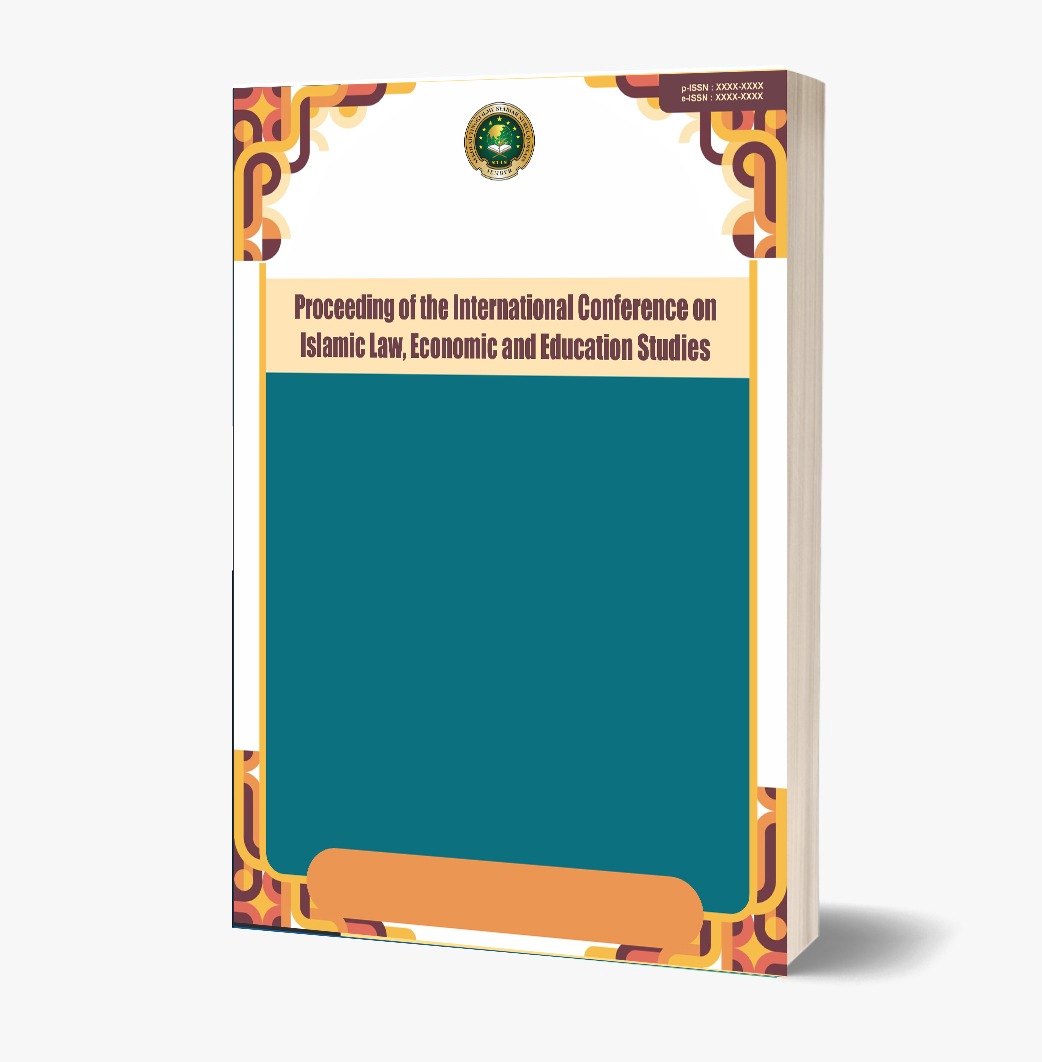Review Law Economy Shariah On The Impact Of Geopolitics On Rupiah Exchange Fluctuations
Keywords:
Currency Exchange Rate Fluctuations, Geopolitics, Economic Stability.Abstract
In the context of fluctuations in the Indonesian rupiah exchange rate influenced by geopolitical factors, this research aims to analyze the impact of trade policies, geopolitical conflicts, and government interventions on the stability of the rupiah exchange rate. Through a literature review approach, the analysis explores the relationship between geopolitical factors and fluctuations in the rupiah currency exchange rate. The research findings indicate that international trade policies, geopolitical conflicts, and government interventions play a significant role in shaping the stability of the rupiah exchange rate. The implications of these findings underscore the importance of coordinating national economic and financial policies in facing complex geopolitical dynamics to maintain Indonesia's economic stability. By strengthening cooperation with key trading partners and optimizing foreign exchange market intervention strategies, Indonesia can enhance its economic resilience and create an investment-friendly environment for sustainable economic growth.
References
Advertorials. (2023). Direction policy monetary BI 2024, focus take control inflation and maintaining exchange rates. KOMPAS.com. Jakarta. https://biz.kompas.com/read/2023/12/03/204011228/arah-kebijakan-moneter-bi-2024-focus-control-inflation-and-maintain-exchange-rate
Afriyanti, N. (2020). The effect of inflation and economic growth on the rupiah exchange rate 2010-2018 (Doctoral dissertation, IAIN Ponorogo).
Afriyanti, N., & Prasetiyo, L. (2021). The influence of inflation and economic growth on rupiah exchange rate in short and long term 2010-2018. JoIE: Journal of Islamic Economics, 1(1), 27. https://doi.org/10.21154/joie.v1i1.3081
Alif, D., Shafira, D. A., & Wiweko, R. A. (2022). The influence of protectionism policy implementation through domestic component levels on international tenders/selections. IusQuiaIustum Law Journal, 30(1), 120–121. https://journal.uii.ac.id/IUSTUM/article/download/21345/14429/80058
Baqir, M. (2023). Rupiah weakens due to geopolitical risk. ANTARA. Jakarta. https://www.antaranews.com/berita/3781752/rupiah-melemah-due-to-geopolitical-risks
Dear Sir, D. C. (2020). Financial management international. Deepublish.
Estetika, M., & Elake, G. L. (2022). Analysis of international trade dynamics and its influence on United States protectionist trade policy. Sriwijaya Journal of International Relations, 2(2), 42–69.
Fedihartono, C. M., Virjannah, N. A., & Yasin, M. (2023). The effect of exchange rates on unemployment, foreign debt, trade balance, and economic growth in Indonesia. Trending: Journal Economy, Accountancy and Management, 1(3), 9–.
Harun, U. (2022). Development of international politics in the Cold War era and globalization.
Hesniati, S., Nanto, H., & Harsono, D. (2022). The influence of world oil prices, political stability, and interest rates on exchange rates in Indonesia. Macro: Journal Management and Entrepreneurship, 7(2), 117–118. http://dx.doi.org/10.53712/jmm.v7i2.1501
Isna, R. S., & Yoga, S. (2022). These are BI's steps to maintain rupiah exchange rate stability. KOMPAS.com. Jakarta. https://money.kompas.com/read/2022/07/08/180000926/ini-langkah-bi-untuk-jaga-stabil-nilai-tukar-rupiah
Manihuruk, F. E., Silvani, D., Feby, Y., & Marbun, J. (2023). Analysis influence of export, import, and JUB in Indonesia to exchange rate.
Nugroho, A., & Nasrudin, N. (2022). Study of exchange rate volatility and its effect on English economic indicators with potential exchange rate crisis. Proceedings of The International Conference on Data Science and Official Statistics, 2021(1), 436–447. https://doi.org/10.34123/icdsos.v2021i1.108
Rabbani, D. R. S. (2021). Critical review of TFA WTO (World Trade Organization): Analysis of the implementation of international trade policy in Indonesia. Jurnal Hukum Lex Generalis, 2(1), 14. https://jhlg.rewangrencang.com/
Ramadhani, A. A. P. (2023). Analysis of the influence of foreign exchange reserves, interest rates, and amount of money supply on the exchange rate (Doctoral dissertation, Hasanuddin University).
Randy, F. (2024). Impact of geopolitical conflict, DPR says rupiah is still better than other currencies. Merdeka.com. Jakarta. https://www.merdeka.com/
Rasyid, Z. B. (2023). Effect of inflation, exchange rates, trade openness, and growth economy to investment foreign direct in Indonesia (Doctoral dissertation, Hasanuddin University).
Rully, R., & Dear, R. (2024). Rupiah stressed get close to Rp 16,300 per dollar US, BI continues to intervene in the market. KOMPAS.com. Jakarta. https://money.kompas.com/read/2024/04/19/130652826/rupiah-tertekan-dekati-rp-16300-per-dollar-as-bi-terus-intervensi-pasar
Rupiah exchange rate. KOMPAS.com. Jakarta. https://money.kompas.com/read/2022/07/08/180000926/ini-langkah-bi-untuk-jaga-stabil-nilai-tukar-rupiah
RUPIAH/USD. Journal Research Knowledge Economy, 3(2), 118–129.
Saidina, P., & Hendra, I. (2023). Role trading international on the Indonesian economy. Jurnal Minfo Polgan, 12(2), 2424.
Saukani, M. I. (2020). Jordan's policy consistency to continue offering a "two-state solution" in the Israeli-Palestinian conflict.
Ulhaq, D. F. K., Padillah, A., Hasan, M. A., Qothrunnada, R., Purba, A. M., & Sihabuddin, A. (2023). The effect of rupiah exchange rate, inflation, interest rates on economic growth and public welfare in Indonesia. https://doi.org/10.31219/osf.io/tuahe
Viriya, S. (2024). Iran-Israel: Understanding the chain effects of the weakening rupiah – 'Imported goods prices rise, inflation is high, purchasing power is weak'. BBC News Indonesia. Jakarta. https://www.bbc.com/indonesia/articles/c4n1rgwe14no
Zahwa, M. (2023). The Fed: Geopolitical tensions change global economic outlook. Katadata. Jakarta. https://katadata.co.id/finansial/makro/654c7402705e8/the-fed-geopolitical-tensions-change-global-economic-prospects





